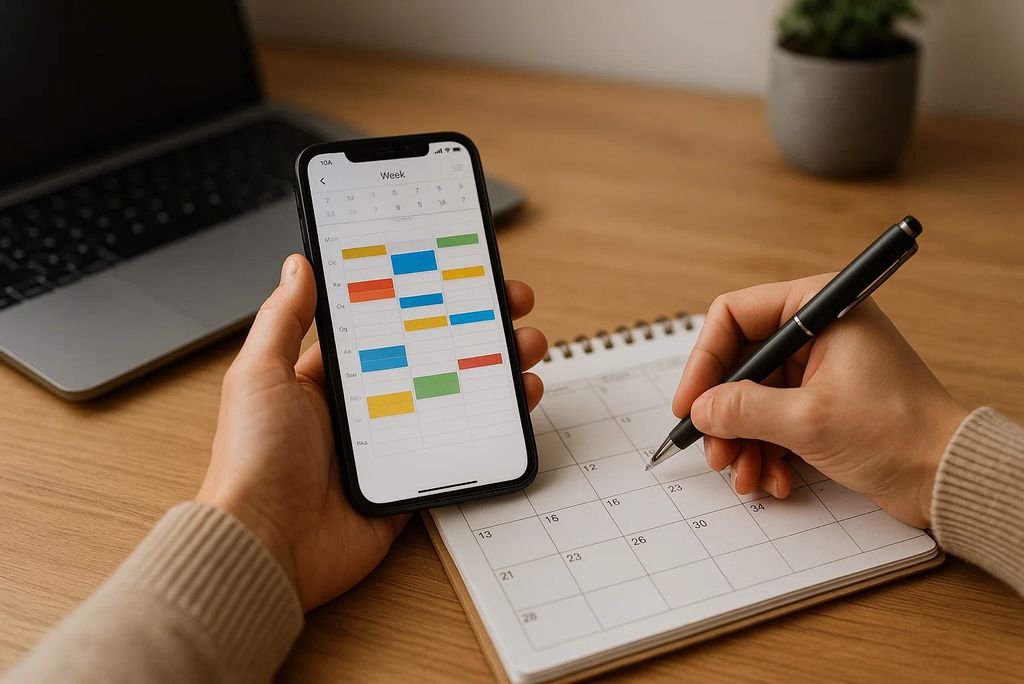Life doesn’t need to be as complicated as we often make it. Many of the frustrations we experience—missed deadlines, cluttered spaces, poor communication—stem from everyday habits we overlook. The good news is that simple behavioral changes can dramatically enhance productivity, clarity, and peace of mind. Here’s a list of straightforward habits that, when practiced consistently, can make life feel smoother, less stressful, and far more manageable.
1. Start Your Day with a Written Plan

Taking five minutes each morning to jot down your tasks can transform how your day unfolds. Writing down goals reduces mental clutter, prioritizes focus, and prevents last-minute stress. It also combats the “busyness trap,” where you feel overwhelmed but accomplish little. Use a simple notebook or digital tool like Todoist or Google Keep to track tasks. Studies show that task-listing boosts productivity and memory recall significantly.
Bonus tip: Review your plan briefly at lunchtime to reset your priorities and stay aligned with changing needs or unexpected interruptions.
2. Follow the 2-Minute Rule

If something takes less than two minutes—like replying to an email, putting away laundry, or booking an appointment—do it immediately. This rule, popularized by productivity expert David Allen, prevents minor tasks from snowballing into stress-inducing backlogs. Implementing this habit reduces procrastination and keeps your physical and digital spaces in check.
Extra edge: It also boosts your reputation as someone who’s dependable, responsive, and efficient, especially in professional and collaborative settings.
3. Lay Out Tomorrow’s Essentials the Night Before

Before bed, prep anything you’ll need in the morning—clothes, keys, lunch, even your coffee mug. This small act eliminates friction during hectic mornings, freeing up decision-making capacity for more important choices. It’s a strategy used by successful CEOs and elite athletes alike.
Pro tip: Include digital readiness—charge your phone and laptop and queue any needed files—so you’re 100% prepared before your day even begins.
4. Declutter for 5 Minutes a Day

Clutter silently drains mental energy and can even increase cortisol levels, leading to stress. Committing just five minutes daily to tidying a drawer, desktop, or shelf brings a surprising sense of control and accomplishment. Over time, it builds momentum and reduces the need for marathon cleanups.
Helpful hack: Keep a small donation box handy so you can painlessly part with items and reduce the burden of “maybe I’ll need it.”
5. Use One Calendar for Everything

Trying to juggle multiple calendars—work, personal, digital, and paper—inevitably leads to confusion and missed commitments. Consolidate all your obligations into one reliable system, such as Google Calendar. Sync across devices and set alerts to never forget an event or deadline again.
Key advantage: Having a single source of truth lets you plan proactively, avoid overlapping events, and say “yes” or “no” to invitations instantly.
6. Automate One Recurring Task Weekly

From setting up auto-bill payments to automating grocery deliveries, reducing recurring decision fatigue pays off. Each automation frees up time and mental energy. Start with one task per week, using tools like IFTTT or Zapier to handle repetitive workflows effortlessly (source).
Expansion idea: Even social posts, email replies, and backups can be automated to save you hours per month and reduce human error.
7. Batch Similar Tasks Together

Switching between tasks burns cognitive fuel. Instead, batch similar ones—responding to emails, making calls, or running errands—into one block of time. This “batching” method enhances focus, reduces distractions, and speeds up execution.
Practical example: Group meal prep, laundry, and cleaning together on weekends. You’ll get more done faster and create smoother weekly routines.
8. Practice Saying “No” Gracefully

Overcommitting leads to burnout and resentment. Learning to decline offers—without guilt—preserves energy for what truly matters. Practice responses like, “I’m focusing on other priorities right now,” or “Let me get back to you later.” Boundaries are the backbone of efficiency.
Extra insight: When you say “no” to one thing, you’re actually saying “yes” to something more aligned with your long-term goals.
9. Schedule Screen-Free Time Daily

Constant notifications fragment attention. Designate at least 30 minutes daily to unplug—read a book, take a walk, or simply reflect. It improves cognitive performance, restores focus, and strengthens real-life relationships.
Simple step: Use app timers or “Do Not Disturb” modes to help enforce this habit without relying on your willpower alone.
10. Default to Healthy Snacks

Keeping fruits, nuts, or yogurt easily accessible helps avoid impulsive junk food choices. Better nutrition enhances mood, energy, and productivity. Studies link consistent, healthy snacking to improved mental performance throughout the day (source).
Smart tip: Pre-portion snacks into grab-and-go containers at the start of the week so convenience never becomes an excuse.
11. Use Voice Notes to Capture Thoughts

Ideas strike at odd times. Voice memos are quicker than typing and help capture inspiration on the go. Apps like Otter or your phone’s recorder make it easy. Later, you can transcribe or expand on the notes when convenient.
Situational tip: Use voice notes during commutes or walks to preserve insights and make otherwise “dead time” more creative and productive.
12. Implement the “One-Touch” Rule

When you open a message, decide on it: respond, delete, archive, or file it—don’t let it linger. This reduces digital clutter and builds decisiveness. Apply the same principle to physical mail or paper documents for instant organization.
Pro efficiency tip: Pair this habit with inbox filters or labeling systems so everything is categorized with minimal effort and follow-up.
13. Create a “No-Brainer” Meal Rotation

Instead of deciding what to eat each night, rotate a few go-to meals. This saves time, reduces grocery stress, and ensures consistent nutrition. Meal kits or pre-prepped components can help. Many successful professionals adopt this habit to streamline weeknight routines.
Time saver: Assign theme nights like “Taco Tuesday” or “Pasta Thursday” to further remove decision fatigue from your evenings.
14. Practice the 5-Second Rule (for Action, Not Food)

From Mel Robbins’ book The 5 Second Rule, this concept encourages acting on a task within five seconds of thinking about it. This interrupts hesitation and jumpstarts motivation. Whether it’s getting out of bed or starting a workout, this rule builds a bias for action.
Crucial mindset: The first few seconds often decide whether you act or stall—use this window wisely to win your inner battles.
15. End the Day with a “Success Review”

Before bed, list 3 things you accomplished. It builds momentum, reinforces progress, and boosts confidence. Over time, this gratitude-oriented habit rewires the brain to focus on wins rather than shortcomings (source).
Helpful expansion: Add one lesson learned or a moment of joy. This enriches reflection and turns each day into a stepping stone forward.

